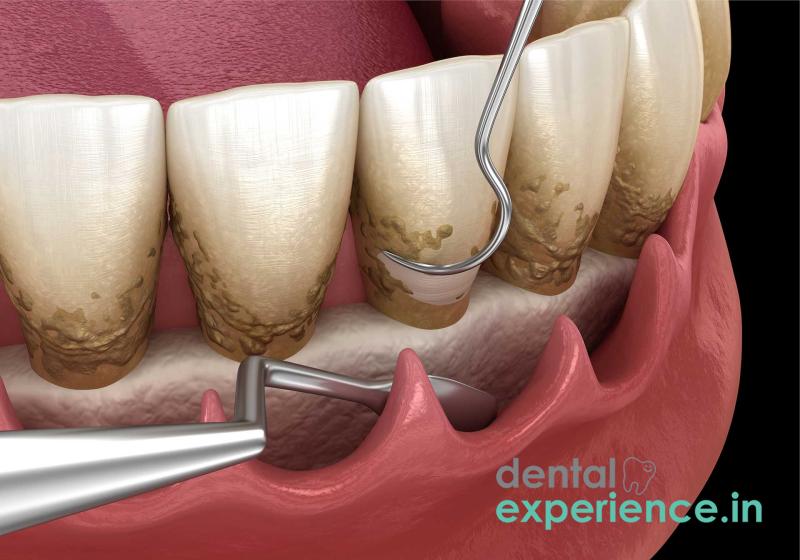You may have had a dental crown fitted in the past but what you may not know is whatever material they are made fr ..
Deep Scaling and Root Planing
Introduction | Purpose | Ideal Patients | Types | Treatment Steps | Benefits | Advantages | Durability | Treatment Time | Cost | Risk & Complications | Disadvantages | Alternatives | Aftercare |
Fast facts

4000/quadrant (1/2 of either the upper or the lower jaw)
2-3 weeks recovery
Treatment Longevity :
3-6 months
Treatment Duration : 45 minutes (in case of severe infections may require multiple sittings)
A deep teeth cleaning can remove a buildup of plaque and tartar on your teeth, reducing gum inflammation and improving gum health.
Plaque is a sticky film that forms on teeth. It contains bacteria and develops when food particles mix with saliva. You can remove plaque, which collects on teeth daily, by brushing your teeth.
Brushing, however, doesn’t remove all plaque in between your teeth. Leftover plaque calcifies or hardens, which forms tartar.
The accumulation of plaque or tartar can lead to gum disease. This includes gingivitis, which is inflammation of the gums. If left untreated, gingivitis can advance to periodontitis. This is a serious infection that destroys the bone that supports the teeth.
During the deep cleaning, also called tooth scaling and root planing, plaque and tartar that has built up on the teeth and root surfaces below the gum line is carefully removed and the exposed root area is smoothed to make it more difficult for bacteria to attach itself. Antibiotics also may be given to get rid of any remaining harmful bacteria.
